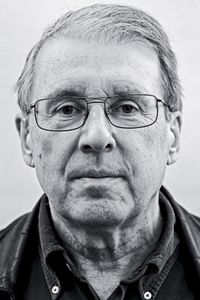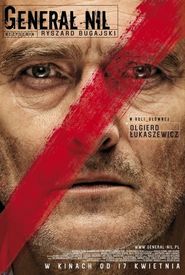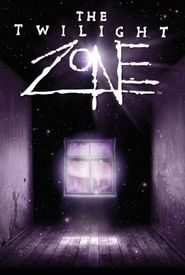Ryszard Bugajski embarked on an illustrious professional journey in the latter half of the 1970s, commencing his creative endeavors by collaborating with the celebrated filmmaker Andrzej Wajda at the esteemed StudioX, a renowned institution that has fostered the growth of numerous cinematic talents throughout its storied history.
As Bugajski traversed the treacherous terrain of Poland during the tumultuous era of the Solidarity uprisings, he was confronted with an agonizing dilemma: surrender to the secret police's coercive demands to assume the role of an informant, thereby compromising his integrity and potentially sacrificing his own freedom, or take a courageous stand and risk everything to bring about the downfall of the repressive Communist regime, a choice that would undoubtedly have far-reaching consequences for his life and the fate of his nation.
Despite the daunting challenges and risks that came with creating a film during a time of martial law, Bugajski remained resolute in his vision and dedicated himself to bringing his debut feature, "Interrogation", to life.
Without the luxury of official approval or resources, Bugajski worked tirelessly in secret, pouring his heart and soul into every aspect of the film. The result was a powerful and unflinching critique of the oppressive regime, a bold and courageous statement that refused to be silenced.
Through "Interrogation", Bugajski skillfully exposed the darker aspects of the system, shedding light on the corruption and brutality that lay beneath the surface. His unwavering commitment to his craft and his unshakeable conviction in the importance of his message made "Interrogation" a testament to the enduring power of art to challenge and transform.
Despite the authorities' concerted efforts to suppress its distribution, the controversial film "Interrogation" managed to evade censorship and reach a staggering audience of millions of Poles, who, undeterred by the risks involved, made it a point to obtain and watch it illegally on their newly acquired home video recorders, thereby circumventing the official ban and demonstrating a remarkable resilience in the face of cultural oppression.
Bugajski's extraordinary display of courage and determination in the face of adversity did not go unnoticed by the authorities, and he was subsequently subjected to a campaign of persecution by the secret police, who sought to break his spirit and silence his voice.
As a result of this relentless pressure, Bugajski was forced to make the difficult decision to leave his homeland and seek a new life in a foreign land, a decision that was made all the more poignant by the fact that he was compelled to flee his wife, who was also his closest confidante and partner.
Together, they set out on a new journey, one that would take them to the distant shores of Canada, a country that would offer them a chance to start anew and rebuild their lives.
Upon arriving in Canada, Bugajski was faced with the daunting task of learning a new language, English, a skill that would be essential for him to navigate the challenges of his new life and to pursue his passion for filmmaking.
Despite the many obstacles that lay before him, Bugajski remained undeterred, and he threw himself into his work, directing television series and films, a testament to his unwavering dedication to his craft and his refusal to let the challenges of his past define his future.
In the years that followed, Bugajski would go on to achieve great success, earning a reputation as a masterful director and a true artist, his work a testament to the power of the human spirit to overcome even the most daunting of challenges.
The passage of time played a significant role in the cinematic journey of "Interrogation", as the collapse of Communism in Poland ultimately led to the film's official recognition as the Polish entry at the prestigious Cannes Film Festival in the year 1990.
As a result of this newfound recognition, "Interrogation" garnered a nomination for the esteemed Palme d'Or award, a testament to its artistic merit and technical excellence.
Furthermore, the outstanding performance of the film's leading actress, Krystyna Janda, did not go unnoticed, as she was awarded the Best Actress accolade for her captivating portrayal of her character.
Her remarkable performance, a true tour de force, left a lasting impression on the audience and the esteemed panel of judges, cementing her position as a talented and accomplished actress in the world of cinema.
Following his relocation back to Poland in the year 1995, renowned filmmaker, Zbigniew Bugajski, resumed his prolific career, churning out a diverse array of cinematic masterpieces, including feature films, documentaries, television series, and television features, which showcased his versatility and artistic range.
Throughout his illustrious career, Bugajski has also made significant contributions to the world of literature, publishing numerous novels that have garnered widespread acclaim. His work has been recognized and celebrated at various prestigious film festivals, where he has received numerous awards and accolades, a testament to his dedication to his craft and his ability to craft compelling stories that resonate with audiences worldwide.
In the year 2009, a significant milestone was reached in the career of Bugajski as he brought forth his highly acclaimed feature film, "General Nil", a cinematic masterpiece that showcased his exceptional storytelling abilities and artistic vision.
Fast forward to 2013, another remarkable achievement was accomplished by Bugajski as his film "The Closed Circuit" made its way to the big screens, receiving widespread critical acclaim and enjoying a remarkable level of commercial success in Poland, a testament to his skill in crafting engaging and thought-provoking narratives that captivate audiences.
---
**Person Biography**
Wojciech Bugajski
Ryszard Bugajski's illustrious career has been marked by an unwavering commitment to speaking truth to power, his voice a beacon of hope and defiance in the face of oppression. As a testament to the transformative power of art, he has consistently used his platform to challenge societal norms and inspire change.
























